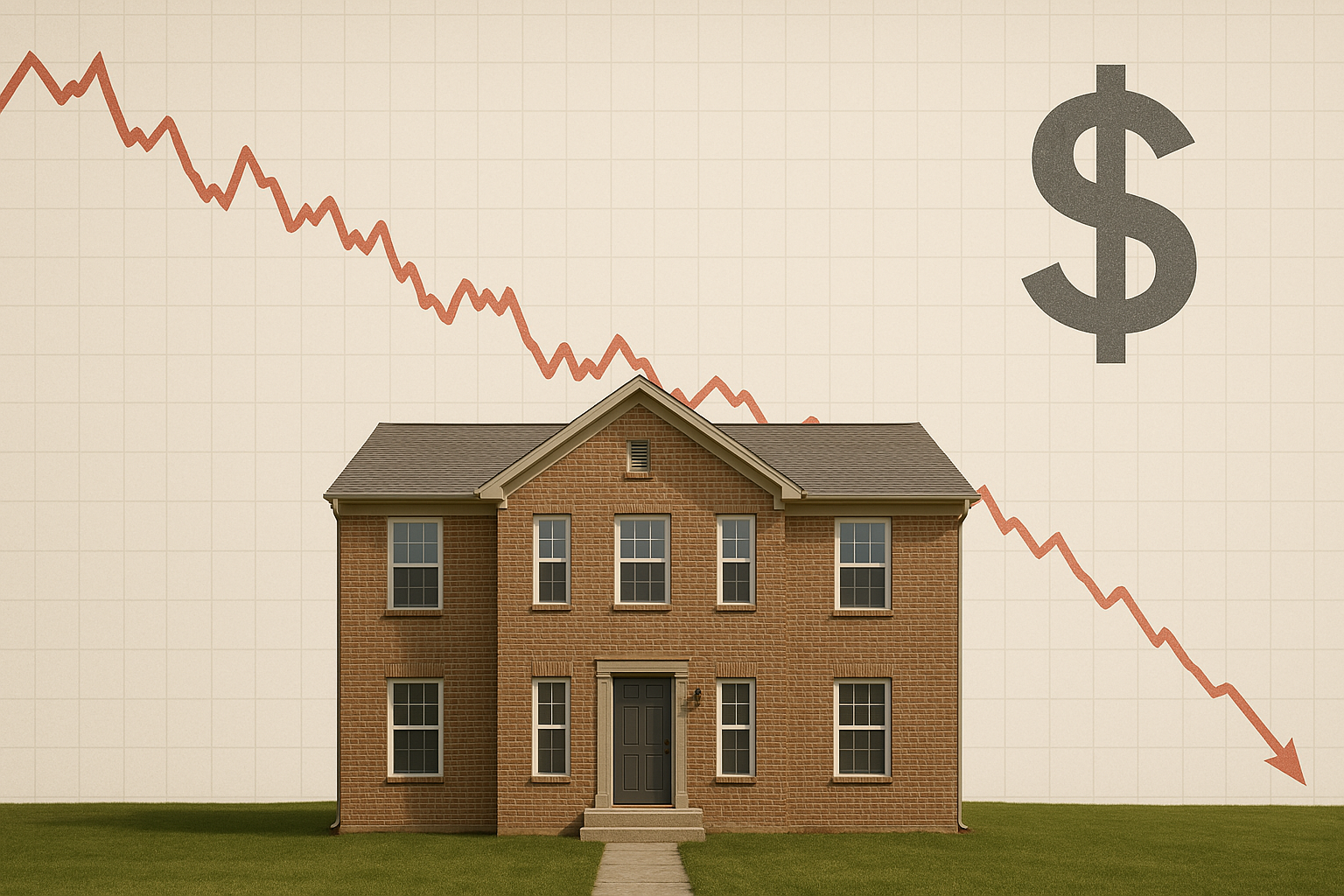Navigating Property Management During a Recession | Effective Strategies for Economic Downturns
Property management during recessions requires strategic approaches to maintain profitability and tenant satisfaction. Learn practical strategies to protect occupancy rates, manage cash flow, implement flexible policies, and position your properties to emerge stronger when the economy recovers.
Understanding the Recession Impact on Rental Markets
Economic downturns create significant shifts in the rental market, affecting both property managers and tenants. While recessions present challenges, they also create unique opportunities for prepared property managers.
Increased Rental Demand
During economic uncertainty, the rental market often experiences increased demand as:
- Potential homebuyers delay purchases due to financial insecurity
- Foreclosures force previous homeowners into the rental market
- Young adults may consolidate housing with roommates or return to family homes
This shift typically benefits property managers who can adapt their strategies to accommodate changing tenant needs.
Tenant Financial Challenges
Despite increased demand, recessions create financial pressures that affect tenants' ability to pay:
- Job losses and reduced hours impact income stability
- Financial uncertainty leads to more cautious spending
- Reduced mobility as tenants avoid the costs of moving
These challenges can lead to increased late payments and requests for accommodations if not managed proactively.
Essential Strategies for Recession-Proof Property Management
1. Prioritize Tenant Retention
Keeping existing tenants is significantly more cost-effective than finding new ones, particularly during economic downturns:
- Responsive maintenance service: Prioritize quick responses to maintenance requests
- Community building: Host virtual or small in-person events to strengthen resident connections
- Renewal incentives: Offer modest concessions for lease renewals (e.g., waived application fees)
- Regular communication: Keep tenants informed about property updates and community resources
Properties that focus on tenant satisfaction during difficult times often maintain higher occupancy rates and more consistent rental income.
2. Implement Flexible Payment Options
When tenants face financial hardship, flexibility can be the difference between collecting partial rent or nothing at all:
- Bi-weekly payment schedules: Align with tenants' pay periods
- Temporary payment plans: Spread overdue amounts over several months
- Security deposit alternatives: Consider monthly fee programs instead of large upfront deposits
- Late fee adjustments: Waive fees for tenants with previous good payment history who communicate proactively
According to property management data, many landlords have used tenant payment agreements for late rent, with most reporting improved collection outcomes compared to strict enforcement.
3. Optimize Operations for Cost Efficiency
Controlling expenses becomes even more critical during recessions:
- Prioritize essential maintenance: Focus on repairs that protect property value
- Review vendor contracts: Renegotiate service agreements for better terms
- Implement energy efficiency measures: Reduce utility costs with LED lighting and programmable thermostats
- Streamline administrative processes: Leverage technology to reduce paperwork and staff time
By carefully managing expenses without sacrificing property quality, managers can maintain profitability even with potential revenue challenges.
4. Adopt Strategic Pricing Approaches
Rental pricing requires careful consideration during economic downturns:
- Data-driven rate setting: Use market comps rather than arbitrary adjustments
- Seasonal adjustments: Offer slightly lower rates during slower seasons
- Value-add options: Create premium packages for tenants who want additional services
- Length-of-stay incentives: Provide modest discounts for longer lease terms
These approaches help maintain competitive rates while preserving rental income stability.
Financial Management During Economic Uncertainty
Build Emergency Reserves
Properties with strong cash reserves weather recessions more effectively:
- Aim for 3-6 months of operating expenses in reserve
- Create dedicated maintenance emergency funds
- Establish lines of credit before they're needed
- Review insurance policies to ensure adequate coverage
Financial preparation provides protection when economic challenges arise unexpectedly.
Monitor Key Performance Indicators
Regular tracking of essential metrics helps identify problems before they become critical:
- Occupancy rates: Watch for trends that might indicate market softening
- Days vacant: Track the average time to fill empty units
- Rent collection percentage: Monitor the proportion of expected rent actually collected
- Maintenance costs per unit: Identify unusual expense patterns
These indicators serve as early warning systems that allow for proactive management.
Analyze Expense Categories for Optimization
During recessions, a detailed review of expenses can identify significant savings opportunities:
- Utilities: Investigate abnormal usage patterns and implement conservation measures
- Insurance: Compare policies and consider higher deductibles for lower premiums
- Marketing: Shift toward cost-effective digital channels rather than print advertising
- Administrative costs: Look for process improvements and technology solutions
These optimizations protect cash flow during periods of economic stress.
Property-Specific Recession Strategies
Multi-Family Properties
Apartment communities face unique challenges during recessions:
- Higher density creates opportunities for community-building activities
- Shared amenities may need cost-effective restructuring
- Diverse tenant income levels create varied financial impacts
- Common areas require careful maintenance prioritization
Building a sense of community becomes even more important during difficult times, as tenants may prioritize payments for housing where they feel connected.
Single-Family Rentals
Individual rental homes present different recession considerations:
- Typically higher-income tenants may be more recession-resistant
- Maintenance costs per unit tend to be higher
- Fewer units mean each vacancy has a larger financial impact
- Tenant preferences may shift toward single-family options during health crises
Managers of single-family portfolios must be particularly vigilant about tenant selection while balancing the higher cost of vacancies.
Communication Strategies During Economic Downturns
Proactive Tenant Engagement
Clear, compassionate communication helps maintain positive relationships:
- Acknowledge economic challenges without creating alarm
- Provide resources for tenants experiencing financial difficulties
- Listen attentively to concerns and respond with empathy
- Create open channels for tenants to discuss payment issues before they escalate
This approach demonstrates understanding while maintaining necessary business operations.
Transparent Owner Communication
Property managers must keep owners informed while providing realistic expectations:
- Explain market conditions with supporting data
- Present concrete plans for navigating challenges
- Recommend strategic investments that may provide recession advantages
- Set appropriate expectations for potential income fluctuations
Transparency builds trust during uncertain times and positions managers as valuable advisors.
Opportunities During Economic Downturns
While recessions present significant challenges, they also create opportunities for well-positioned property managers:
Strategic Acquisitions
Distressed properties may become available at favorable terms:
- Properties with deferred maintenance can present value-add opportunities
- Motivated sellers may accept creative financing arrangements
- Less competition from speculators improves acquisition terms
- Lower interest rates may be available for qualified buyers
Property managers who maintain strong financial positions can expand their portfolios during downturns.
Service Expansion
Recession periods can be ideal for introducing new services:
- Additional property management offerings for owners seeking professional assistance
- Maintenance services for self-managed properties
- Tenant placement services for independent landlords
- Virtual property management options for remote owners
These expanded services create new revenue streams while building client relationships.
Market Repositioning
Economic shifts may create opportunities to reposition properties:
- Units may appeal to different demographic groups during recessions
- Modest upgrades can significantly improve competitiveness
- Amenity adjustments may better align with changing tenant preferences
- Marketing messages can be refined to address recession-specific concerns
These adjustments help properties remain relevant during changing economic conditions.
Conclusion: Emerging Stronger from Economic Downturns
Economic recessions inevitably impact the rental market, but prepared property managers can navigate these challenges successfully. By focusing on tenant retention, implementing flexible policies, controlling costs, and maintaining strong communication, managers can protect both their properties and their residents during difficult times.
Rather than simply surviving a recession, strategic property management can position properties to emerge stronger, with stable occupancy, reliable tenants, and optimized operations that will continue to benefit the property during economic recovery. The property managers who view recessions as opportunities for refinement and growth will find themselves with significant advantages when market conditions improve.
Make the smart choice for your properties today. Implement these recession-resilient strategies to protect your investments and enhance long-term value.
Related Blog Posts:
- Tenant Lease Renewal Strategies | Reduce Tenant Turnover & Boost Retention
- Rent Payment Plans for Tenants | Flexible Rent Payment Options
- Optimize Rent Pricing: Techniques to Boost Profits
Beagle is the #1 platform for property managers to launch profit-maximizing reinsurance and resident benefit programs that tenants love through our association.
Book a Demo Today







